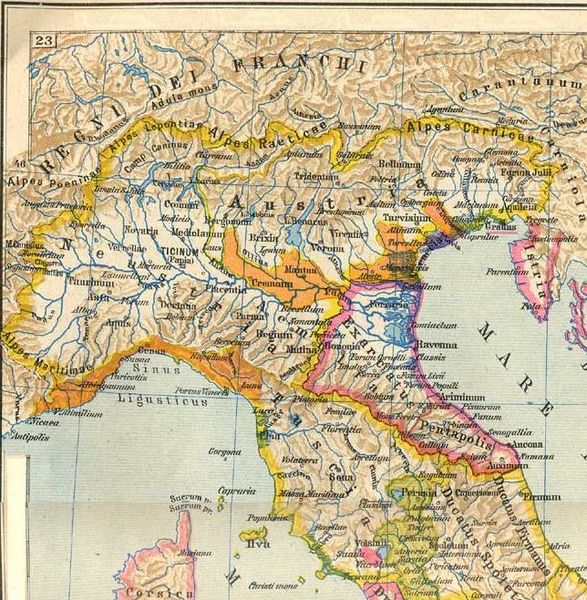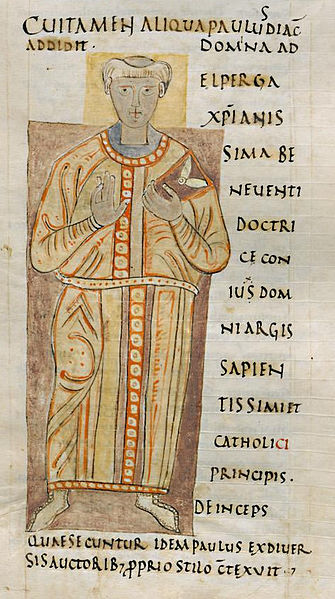The Kingdom of the Lombards, also known as the Lombard Kingdom and later as the Kingdom of all Italy, was an early medieval state established by the Lombards, a Germanic people, on the Italian Peninsula in the latter part of the 6th century. The king was traditionally elected by the very highest-ranking aristocrats, the dukes, as several attempts to establish a hereditary dynasty failed. The kingdom was subdivided into a varying number of duchies, ruled by semi-autonomous dukes, which were in turn subdivided into gastaldates at the municipal level. The capital of the kingdom and the center of its political life was Pavia in the modern northern Italian region of Lombardy.
The Lombard possessions in Italy: The Lombard Kingdom (Neustria, Austria and Tuscia) and the Lombard Duchies of Spoleto and Benevento
Theudelinda in a fresco by Zavattari
The Lombard Kingdom with its three main areas: Neustria, Austria and Tuscia
Gravestone of Cunipert, Pavia Civic Museums.
The Lombards or Longobards were a Germanic people who conquered most of the Italian Peninsula between 568 and 774.
Lombard possessions in Italy: the Lombard Kingdom (Neustria, Austria and Tuscia) and the Lombard Duchies of Spoleto and Benevento
Wodan (Godan) and Frigg (Frea) looking out of a window in the heavens...
Paul the Deacon, historian of the Lombards, circa 720–799
Rosamund forced to drink from the skull of her father by Pietro della Vecchia. According to Samu Szádeczky-Kardoss, the cup could be a gift from Bayan, as it was a nomad habit to make cups from the enemy's skulls







